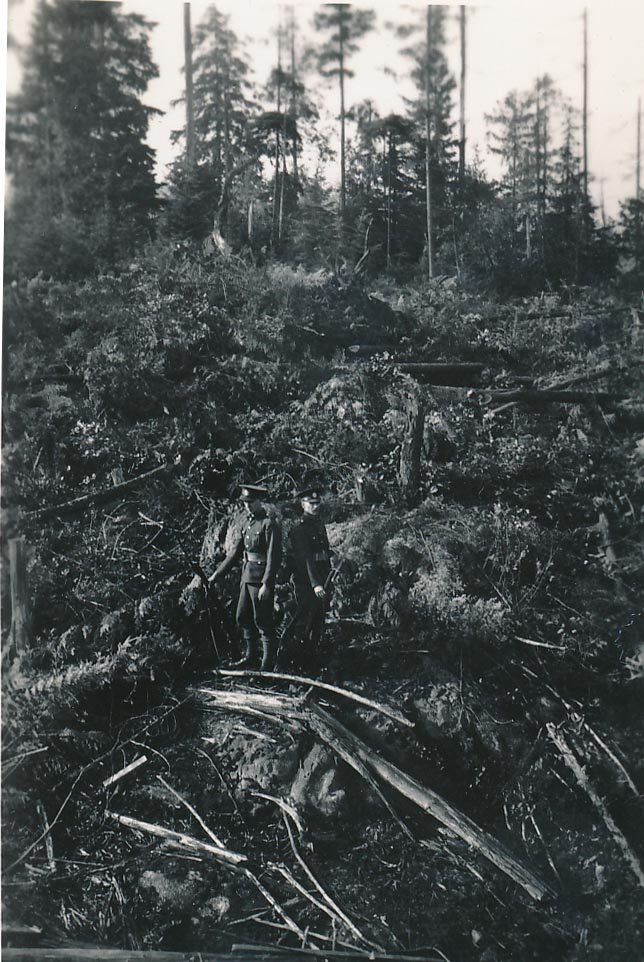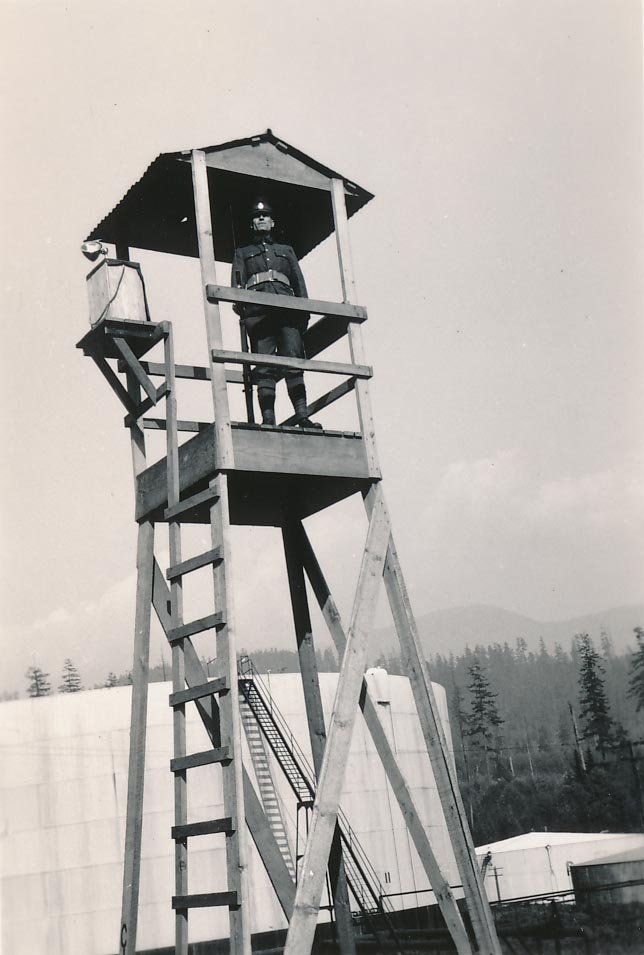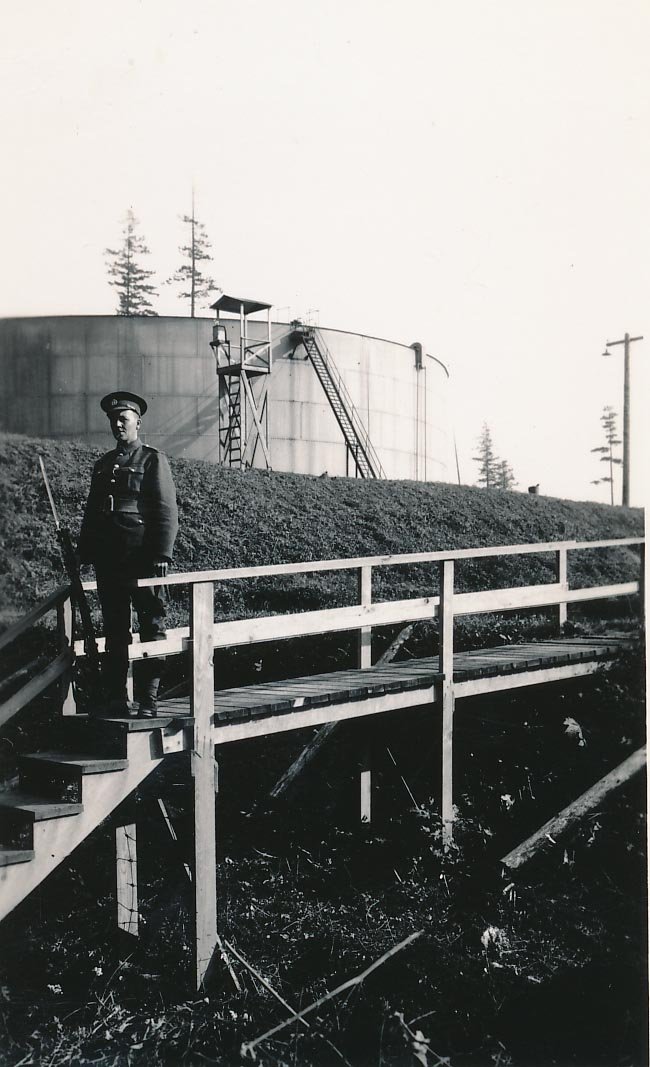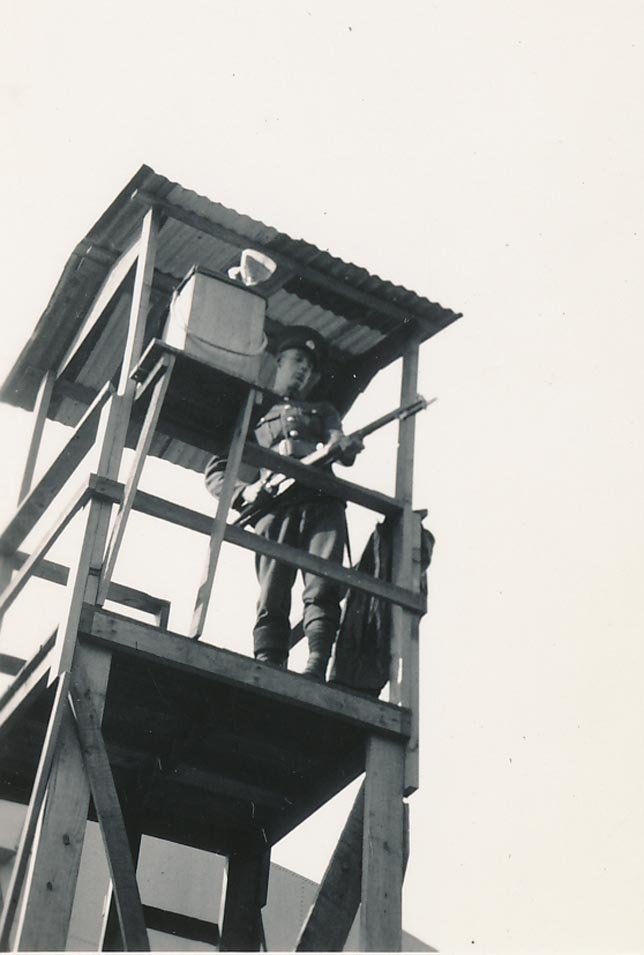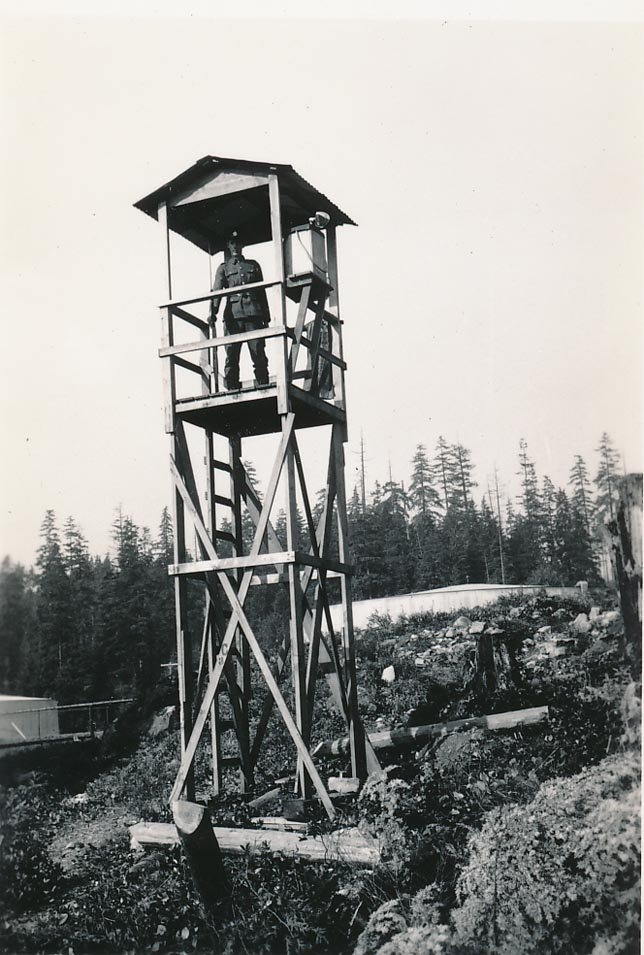During the War
IOCO Memories
Chapter 19
The Refinery
Ioco quickly became a valuable military asset as naval ships and military equipment relied on the fuel it produced. Throughout the war, various naval vessels refueled at Ioco before setting out to sea. To protect the refinery, Canadian Army BC Connaught’s regiment was stationed there. In the beginning, officers stayed at the Ioco Hall, while soldiers occupied rows and rows of tents in front of the Hall. Eventually the soldiers built an army camp on the nearby soccer field where 200-400 men, tanks and other equipment were housed. The refinery was surrounded by barbed wire and gun turrets with anti-aircraft guns. Then one morning the town woke up and the soldiers were gone on their way to England. Residents of Ioco were kept in the dark as to the officers plans as a matter of military safety. Soon after, a group of retired soldiers called the Home guard came and looked after the refinery for the reminder of the war. With little for the Home guard to do, they often put on shows to entertain the locals. Although not from the area, these men made Ioco their home for a number of years.
During the war, Service groups were formed. The Red Cross had members whose enthusiasm for work and their many contributions to the needy, can still be remembered. Ioco Residents organized ‘Red Cross groups to help aid in the war effort. They assembled care packages to send to soldiers overseas.
A branch of the Imperial Order of Daughters of the Empire was formed, and efforts to raise money for contributions to various war funds were energetically supported by the women of Ioco. During World War II the army set up barracks located on the sports field and practised target shooting in the community hall basement.
After the war the Ioco Welfare Community Organization was formed to help raise funds for those most in need. They held fundraisers to buy food and clothing and even handed out Christmas Hampers. (Source Townsite Tales: Ralph Drew, PMHS Oral Histories).
Article in the Paper
Edward Hanson (air force), Arthur Kreut and Leslie McCrea grew up in Ioco.
Gas Masks
the Ioco Newsletter featuring the honour roll and a story about gas masks.
Ioco Times December 1942 - gas mask
Ioco Times December 1942 – honor Roll
Thelma Davies
I do remember they used to have the blackouts. The siren, the warning, would go and you had to draw all your drapes and make sure there were no lights showing at all outside. And, you know, you just had to have every window covered, tar paper, whatever you had to put and had to have on your windows. And I just remember sitting on the Chesterfield , it was very scary. It was just a practice thing. I remember my dad would go out as-He had to check, go around the streets and make sure that there were no houses that had any lights showing at all. But it was-It was very scary, to me as a child.
There was 200 young soldiers brought to Ioco in September of 1939 and they were billeted in the Ioco Hall. And- Mind you the concerts went on, even when the soldiers were there because the - I guess all the bunks had to be taken down to the basement and um, so they were here to guard the plant. And one funny story is a young soldier who was patrolling down on the Imperial Oil docks, and he saw this thing sticking out of the water and coming through the Inlet and he thought it was a submarine, Japanese submarine. So of course he panicked and uh, immediately notified the authorities and of course there was great commotion but by the time everybody got down to the water, they find out it was a deer swimming across”.
Jeanette Machan
My brothers and their friends all of their friends were in the service.
“As I said, like the war, it effected the community in the fact that we were, had to practice and be aware that, you know, anything could happen”.
Marjory Kingsbury
In 1939, the D.C.O.R.S. Army came to Ioco to patrol the refinery and each street on the townsite — every girl had a soldier those days. When they were sent overseas, the veterans guard came to Ioco. Barracks were set up near the school on the ballfield. They had shows once a week in their barracks and a good canteen.
Unknown Author
You know, as each of the kids graduated from high school, all of the boys, they immediately went into the service at eighteen. We used to have all the going-away parties at our house on 3rd Avenue, and have all the kids make pancakes and waffles.
